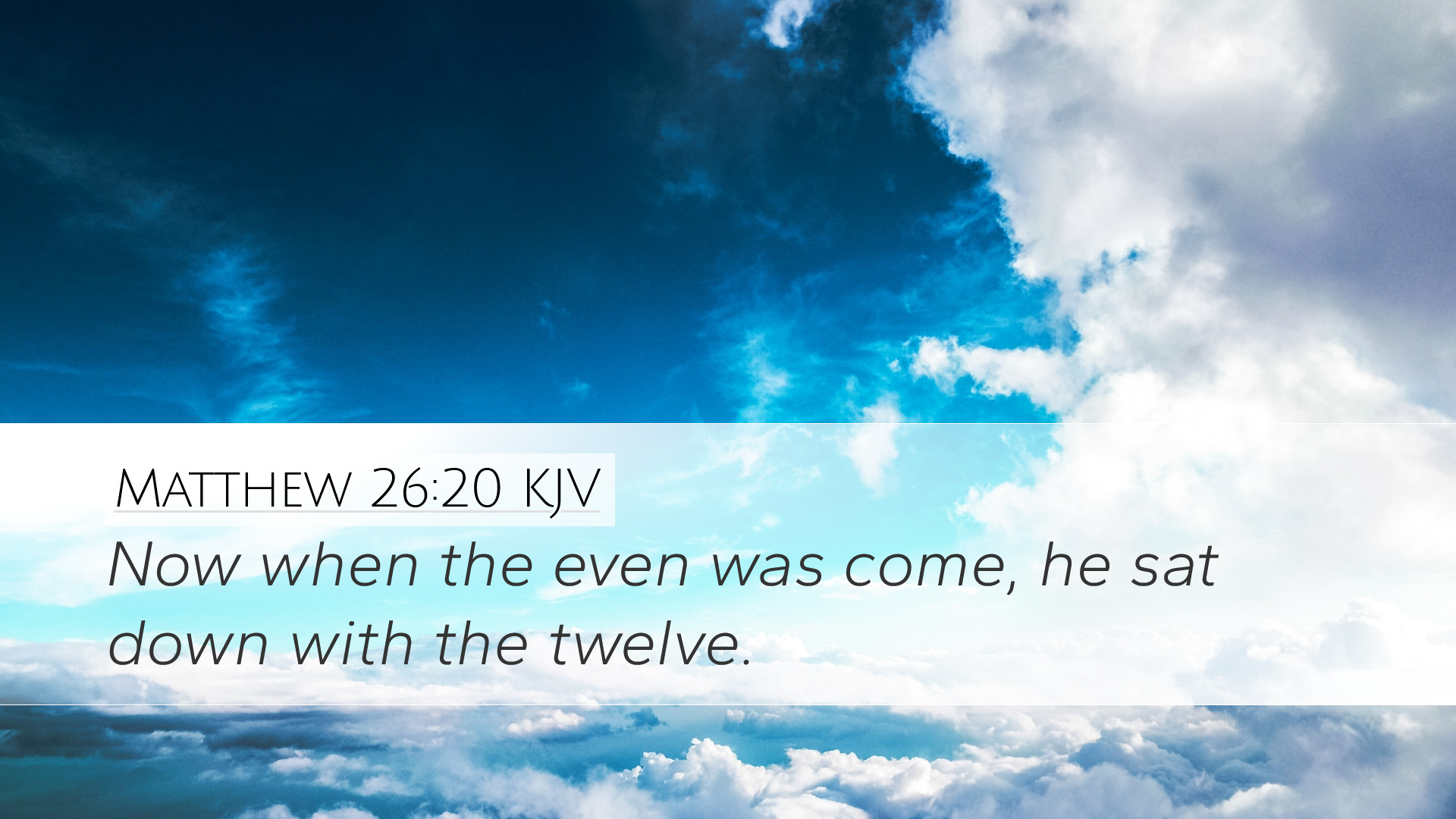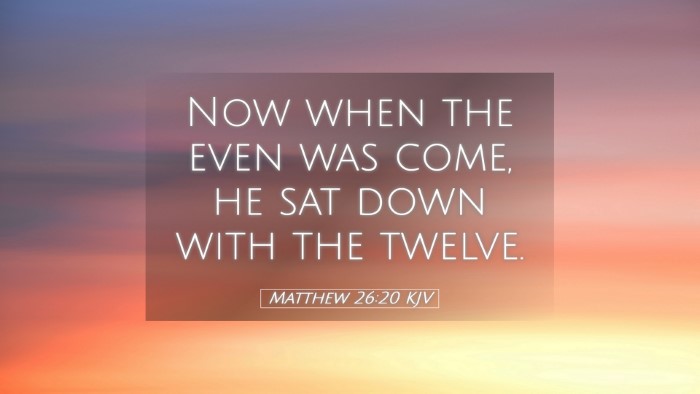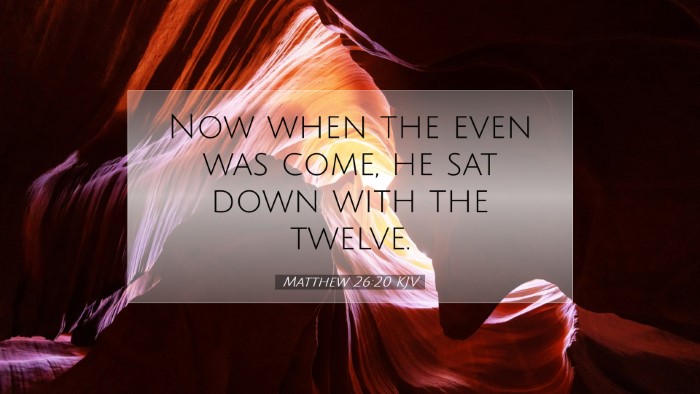Commentary on Matthew 26:20
Verse Context: Matthew 26:20 states: "Now when evening had come, He sat down with the twelve." This verse marks a significant turning point in the narrative of Matthew’s Gospel, transitioning from Jesus' public ministry to the intimate moments of the Last Supper.
The Setting of the Last Supper
Here, the scene is set in a solemn and contemplative atmosphere, embodying the weight of the events to follow. The gathering of the twelve disciples signifies the culmination of Jesus’ teaching and fellowship with His closest followers.
Albert Barnes notes that the evening is emblematic of the darkness that will soon envelop Christ’s passion. The choice to share this moment with His disciples emphasizes the importance of community and fellowship in times of great distress.
Significance of 'Sitting Down'
Matthew's phrase "He sat down with the twelve" conveys a sense of authority and intimacy. In the cultural context of the time, sharing a meal was a significant act that illustrated deeper relational bonds.
Matthew Henry expounds on the custom of reclining at meals during that period, indicating not only comfort but also the relational dynamics of trust and commitment among those present. Jesus’ action of sitting with His disciples signifies His willingness to share His life and impending suffering with them.
The Symbolism of the Number Twelve
The presence of the twelve disciples is not arbitrary; it evokes the twelve tribes of Israel, symbolizing completeness, God’s covenant with His people, and the continuing legacy of Israel within the Church. This moment encompasses themes of betrayal, sacrifice, and the establishment of a new covenant.
Adam Clarke emphasizes that the aggregation of the twelve represents Christ’s steadfast commitment to His mission, despite the impending betrayal of Judas Iscariot, one of the twelve. In this setting, Jesus confronts the reality of human frailty and the impending trials that lie ahead.
The Implications of the Gathering
Pastors and theologians might reflect on how this moment prompts believers to examine their own interactions with Christ and one another. The Last Supper becomes a model for communal worship and remembrance, establishing the practice of breaking bread in Christian communities.
- Community and Fellowship: The event affirms the need for community, especially during challenging times.
- Model of Humility: Jesus, though the Master, becomes the servant, illustrating leadership through service.
- Awareness of Betrayal: Even in moments of intimacy, the presence of betrayal reveals the complex nature of human relationships.
Theological Reflections
The act of sitting down for a meal encapsulates profound theological themes regarding Jesus Christ’s humanity and divinity. It speaks to His incarnation, the establishment of the new covenant through His death, and the communal aspect of salvation that invites all believers into participation.
Henry draws attention to the expectation of the Last Supper in the wider context of salvation history. This gathering foreshadows the sacrificial act on the cross, linking it to the Passover meal that preceded the Exodus, thereby underscoring Jesus as the fulfillment of God’s redemptive plan.
Application for Modern Believers
As modern readers, especially pastors and theologians, we must glean practical insights from this verse:
- Fostering Community: Build spaces for authentic fellowship that honors Christ's model.
- Embracing Vulnerability: Recognize our shared weaknesses and the need for grace in community.
- Remembering Christ: Cultivate practices that focus on remembrance of Jesus’ sacrifice in our lives and congregations.
Conclusion
Matthew 26:20 serves as a profound reminder of the complexities inherent in human relationships, the importance of community, and the significance of Christ’s sacrifice. As believers gather today to partake of communion, they echo these themes established in this pivotal moment.
Engaging with this scripture invites the church to celebrate the depths of grace available to us and challenges us to walk in a manner worthy of our calling, reflecting His love and sacrifice in our lives.


